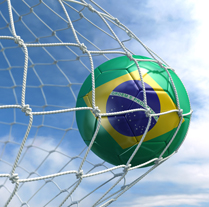Table of Contents
Key Points

- Multilingual communication is essential at the FIFA World Cup
- FIFA official languages support global audiences and teams
- Language plays a critical role in soccer events and officiating
- The FIFA World Cup promotes global interaction through language
- Language services at FIFA have evolved with global demand
Multilingual Communication at the FIFA World Cup
As the world gears up for the FIFA World Cup, the significance of language plays a crucial role in ensuring smooth communication for both players and fans. This global sporting event brings together 32 teams from different countries, making multilingual communication at the FIFA World Cup essential for host nations like Brazil.
Volunteers from 137 countries, including places as far away as Poland, support the event by offering interpretation, translation, and fan assistance services. These language professionals ensure that visitors can navigate venues, access information, and fully enjoy the tournament.
Why multilingual communication matters at the World Cup:
- Enables clear interaction between teams, officials, and organizers
- Supports millions of international fans and visitors
FIFA’s Official Language and Multilingual Strategies
While Portuguese is the primary language spoken in Brazil, English is the official language of FIFA during the World Cup. This allows FIFA to communicate consistently with teams, referees, media, and global audiences.
With more than 600,000 international visitors, Brazil temporarily becomes a hub of linguistic diversity. FIFA’s multilingual strategies include translated signage, multilingual volunteers, and broadcasts of all 64 matches in multiple languages through streaming platforms, reinforcing FIFA’s commitment to accessibility.
FIFA Official Languages and Global Broadcasting
FIFA languages extend beyond English through localization and translation efforts. Fans around the world can watch matches and follow updates in their preferred languages, enhancing engagement and inclusivity.
Role of Language in FIFA and Soccer Events
Language plays a vital role in FIFA operations both on and off the field. Volunteers providing language services are considered part of FIFA’s specialist staff and assist with press conferences, interviews, and real-time interpretation.
For referees, language skills are particularly important. What language do referees speak in the World Cup? While English is the primary FIFA football language, referees often speak multiple languages to communicate effectively with players from different countries.
Language Skills and Match Officials
Strong communication skills help referees manage fast-paced matches and prevent misunderstandings that could impact gameplay or fairness.
Key language-related responsibilities in FIFA soccer events:
- Supporting referees and officials during matches
- Translating press conferences and official announcements
Why the FIFA World Cup is Important for Global Interaction
The importance of the FIFA World Cup goes far beyond soccer. It is a rare global event where countries unite, cultural differences are set aside, and communication becomes essential. Language services help foster mutual understanding among players, fans, and officials.
What language do they speak at the FIFA World Cup? Although English is FIFA’s official language, there is no single spoken language on the field. Players, referees, and coaches communicate in multiple languages, making interpretation a key component of successful interaction.
Related: The Relationship between Language and Culture
Evolution of Language Services in the FIFA World Cup
The evolution of language services at FIFA has been significant. Translation and interpretation are now embedded in FIFA’s operations, from multilingual press conferences to real-time communication during matches.
As FIFA continues to grow its global reach, its multilingual strategies will expand further, setting new standards for international sporting events and ensuring that language is never a barrier to participation.
Call to Action
Global events like the FIFA World Cup demonstrate the power of language in connecting people worldwide. Translation Excellence provides professional translation and interpretation services that support international sports events, media communication, and multilingual audiences. Partner with experts to ensure clear, accurate, and inclusive communication at every level.
FAQs:
What is the official language of FIFA?
English is the official language of FIFA for administrative and official communication.
In which language is FIFA written?
FIFA documentation is primarily written in English, with translations provided in other languages.
How are language and sport connected?
Language enables communication between players, officials, fans, and media, ensuring fairness and global accessibility.
How do you change the language on FIFA platforms?
Most FIFA digital platforms allow users to select their preferred language through settings or regional options.
How does language play an important role?
Language removes barriers, enhances inclusion, and ensures accurate communication at global events like the World Cup.
Will you be watching the FIFA World Cup this year? How do you think language services will help you enjoy the event more fully?


